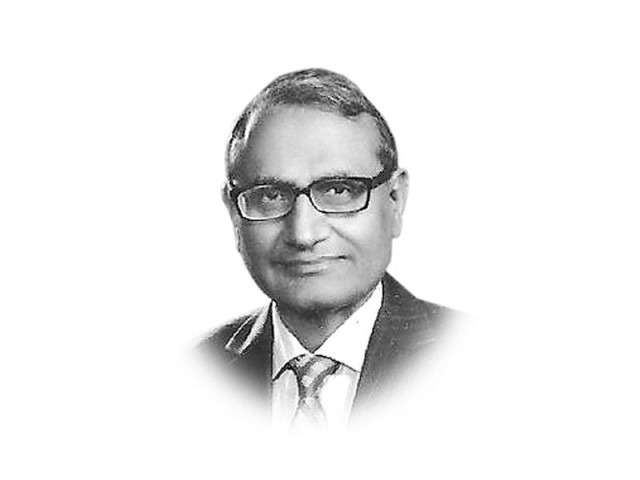A matter of land
Small owners are selling more land than they are buying and large owners are buying more land than they are selling.

pervez.tahir@tribune.com.pk
Although Pakistan is more urban than the census tells us, the economy continues to be dominated by the rural sector, which drives the economy up and down. Whatever the definition and methodology of poverty estimation, rural poverty has been higher than urban poverty since 1996 up until 1997, and rising. As the saying goes, poverty anywhere is a threat to prosperity everywhere. Poverty is significantly related to asset ownership, social or physical. In rural areas, land is the most important asset. From 2001-02, according to a study carried out by Talat Anwar, poverty among the landless was the highest (54.6 per cent). Inequality gap in land distribution was also very high: 0.08 per cent households owned more than five acres of land. The Gini coefficient of land holding, the indicator of inequality, was as high as 0.62 per cent. It was the highest for Punjab, followed by Khyber-Pakhtunkhwa (K-P).

Land concentration continues to be high. According to the Census of Agriculture 2010, less than five per cent of owners had 41 per cent of the area, while 67 per cent of owners had less than five acres. In K-P, around one per cent owners had 28 per cent of the area. A most disturbing trend is that small owners are selling more land than they are buying and large owners are buying more land than they are selling. The net loss of land by small owners indicates increasing alienation in landlessness.
An unfortunate fact is that the major political parties ignored the issue. The PPP has long forgotten the letter as well as spirit of its foundation documents. The land reform law declared un-Islamic by the Shariat Bench was steered by its founder in 1977. The PML-N is for corporate agriculture, which requires large holdings. Only the PTI stands for implementing the existing land reform laws. It also wants to see the end of benami ownership, the tool used to get around the ceiling imposed by the land reform law. But the PTI has shown no inclination to become a party to the case in the Supreme Court.
Not only political parties, but also economists had given up on land reform. Under the influence of the neoliberal agenda, the emphasis has been on agrarian reforms, focusing on the deregulation of land market, credit market and input and output pricing. Things have changed in the aftermath of the international crisis, with inequality back on the agenda. Nobel Prize winning economist Joseph Stiglitz has made a strong case for land reform in his two visits to Myanmar. Historically, land reform has been the basis of successful development in East Asia, especially South Korea and Taiwan. Lack of access to land increases poverty and inequality. According to Stiglitz, land reform leading to smaller holdings, together with better access to credit and technology, is the best recipe to maximise productivity. It also has the effect of reducing poverty, vulnerability and inequality.
The landless rest their case. They have full faith in the court of justice.
Published in The Express Tribune, June 28th, 2013.
Like Opinion & Editorial on Facebook, follow @ETOpEd on Twitter to receive all updates on all our daily pieces.












1724319076-0/Untitled-design-(5)1724319076-0-208x130.webp)

COMMENTS
Comments are moderated and generally will be posted if they are on-topic and not abusive.
For more information, please see our Comments FAQ